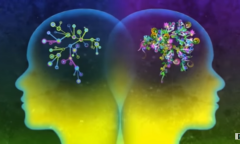By KM Diaz, | March 22, 2017

Researchers have developed a blood test procedure to detect the levels of hormone present among patients with schizophrenia and depression.
Researchers have developed a blood test procedure to detect the levels of hormone present among patients with schizophrenia and depression. The study aims to identify the onset of the disorders to increase the possibility of successful treatment.
According to National Institute of Mental Health (NIMH), about 6.7 percent of adults experienced at least one major episode of depression, and 1.1 percent of adults in the United States suffers from schizophrenia in 2015.
Like Us on Facebook
Initial diagnosis of the disorders has been challenging because of the inconsistent occurrence signs and symptoms. Schizophrenia is often chronic and severe that leaves sufferers disabled, whereas depression is one of the most common mental health problems in the United States.
To identify the onset of the disorders, a team of researchers from Yale, John B. Pierce Laboratory, and VA Medical Center in West Haven, Connecticut, developed a method that uses a blood test to analyze the levels of the hormone that varies when people have depression and schizophrenia.
The arginine-vasopressin (AVP) is a hormone that plays a very crucial role in the retention of water in the body and it is responsible for blood vessel constriction.
Using a concentrated infusion of a saline solution, it will trigger the AVP to be delivered in the blood stream. When AVP was already released, it will be mediated by the NMDA (altered N-methyl-D-aspartate) signaling; the mechanism that promotes communication between cells in the nervous system.
Patients with depression and schizophrenia were compared to healthy controls. All of them received an infusion of a concentrated saline solution and the levels of AVP in the blood were measured.
In their findings, schizophrenia and depression have different patterns of NMDA signaling. In schizophrenia, the NMDA signaling is decreased that causes a low level of AVP in the blood. While it does the opposite in depression, the NMDA increased that result and high AVP in the blood.
In addition, the level of AVP in patients with depression increased three times higher those patients with schizophrenia. Meanwhile, the AVP levels of the healthy controls were not statistically changed.
The AVP blood test can presumably identify the patients who have depression or schizophrenia. But according to the researchers, there are still works to be performed before it can be implemented in the clinical settings.
-
Use of Coronavirus Pandemic Drones Raises Privacy Concerns: Drones Spread Fear, Local Officials Say

-
Coronavirus Hampers The Delivery Of Lockheed Martin F-35 Stealth Fighters For 2020

-
Instagram Speeds Up Plans to Add Account Memorialization Feature Due to COVID-19 Deaths

-
NASA: Perseverance Plans to Bring 'Mars Rock' to Earth in 2031

-
600 Dead And 3,000 In The Hospital as Iranians Believed Drinking High-Concentrations of Alcohol Can Cure The Coronavirus

-
600 Dead And 3,000 In The Hospital as Iranians Believed Drinking High-Concentrations of Alcohol Can Cure The Coronavirus

-
COVID-19: Doctors, Nurses Use Virtual Reality to Learn New Skills in Treating Coronavirus Patients












